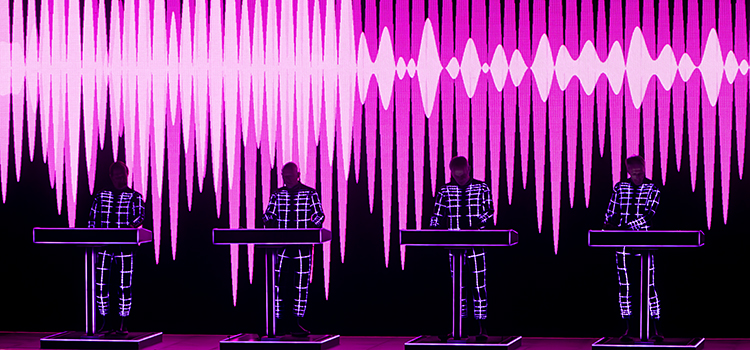Kraftwerk
Greek Theatre, Berkeley
April 18, 2025
Photos by Raymond Ahner
After more than half a century of creating some of the most revolutionary and influential music of all time, German titans Kraftwerk brought their multimedia tour to the Greek Theatre in Berkeley. Following an extended ambient instrumental introduction that began right as the sun was setting, the four members of Kraftwerk took to the elevated stage to an enthusiastic applause from the crowd. The screen behind them began displaying large neon numbers, and the band opened the show with the song “Numbers” from their 1981 album Computer World.
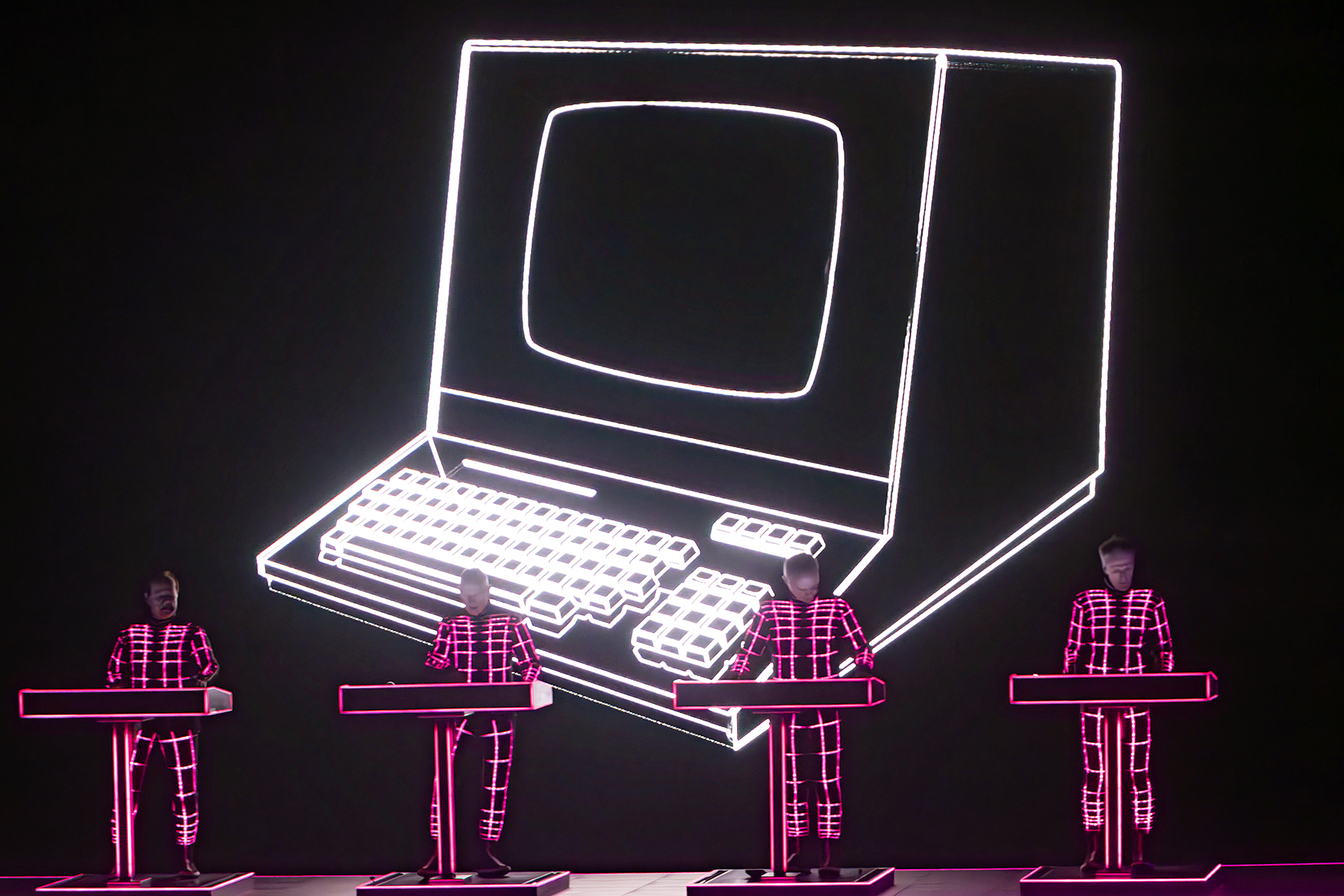
The last time that the band toured in North America was part of their long-running 3D shows where special glasses were required to get the most out of the visuals displayed behind the band. This time around no glasses were needed, which possibly helped the crowd to physically loosen up. As the show went on more and more of the crowd began dancing, until, by the halfway point, the center aisles of the venue more closely resembled a nightclub than a concert. With each subsequent song, more people joined in on the dancing, which was a welcome surprise to see at a concert put on by a band that has been around for fifty-five years.
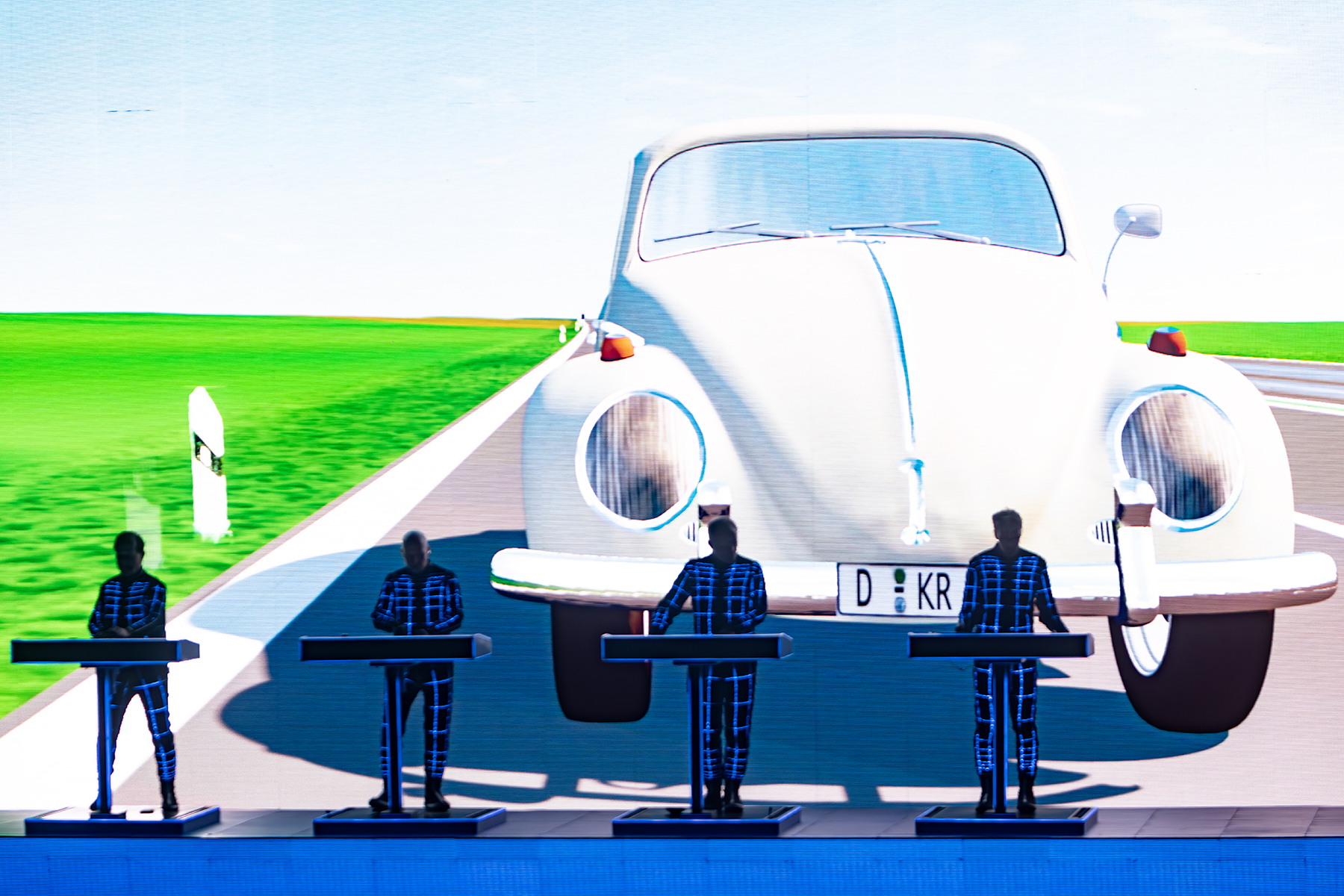
When talking about a Kraftwerk concert, the visuals do need to be talked about in the same way that one would talk about the music. The four members of the band (founding member Ralf Hütter, Henning Schmitz, Falk Grieffenhagen, and Georg Bongartz) all stand at podiums while digital images play on the screen behind them as well as a large LED strip at the base of the podiums. Ralf, Henning, and Falk all play live keyboards while Georg, on his first North American tour as a member of the band, controls the visuals in real-time, creating an auditory and visual synergy that one can’t see at most other shows. With each members suit also displaying rows of colors that change in real-time and corollate to whatever visual is playing onscreen, it adds an extra element to the show that offsets the stillness of the members onstage.
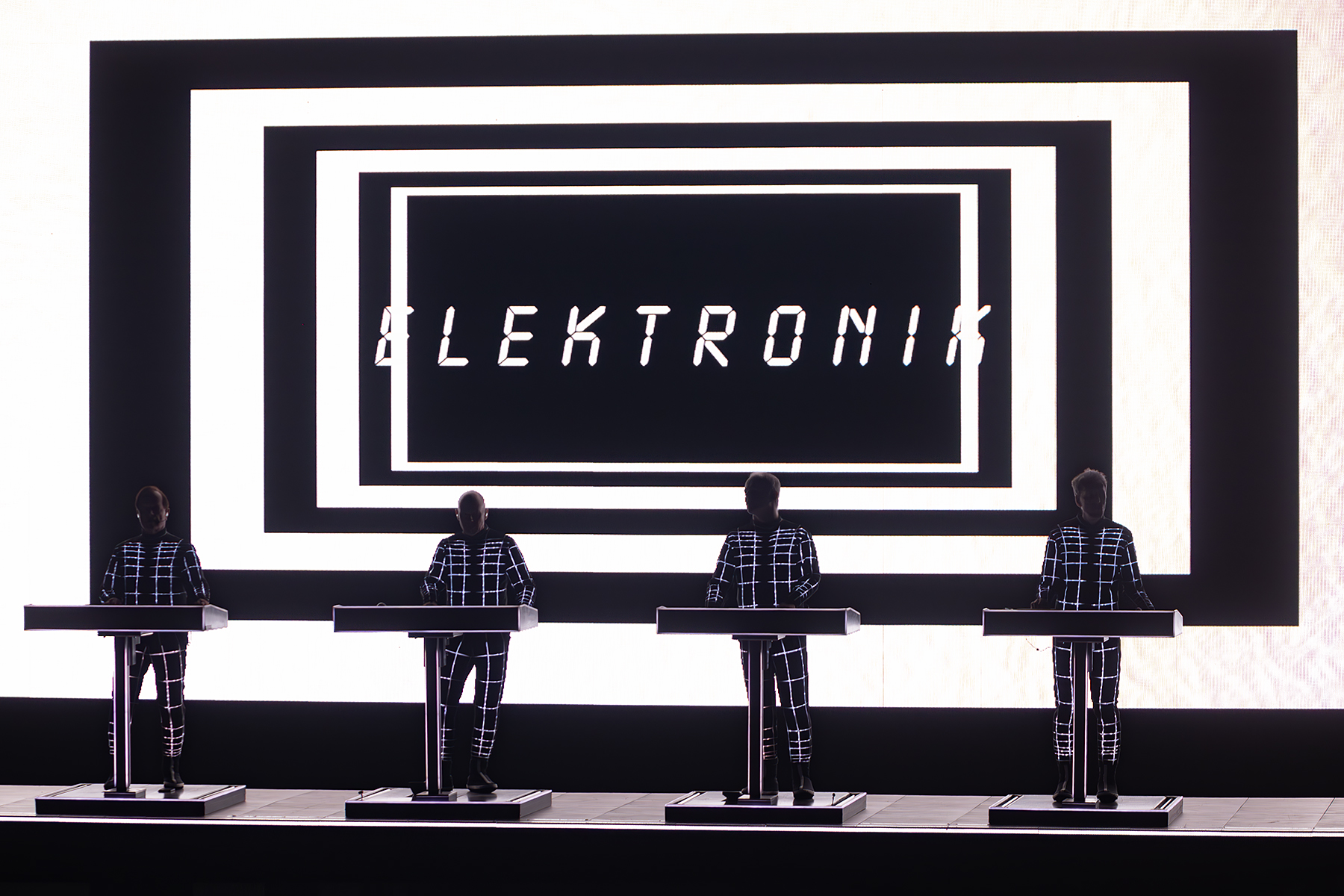
My personal favorite Kraftwerk album is 1978’s The Man-Machine, so it was a massive treat for me to see the song “Spacelab.” It’s always been a favorite song of mine from the album, a song that I would say has gone overlooked by a lot of other fans of the band. It’s the one time that the lyrical themes from a song has come from outer space, with more popular songs by the band being about things made and produced by man: “Autobahn,” “Radioactivity,” “Trans-Europe Express,” “The Robots,” “Computer World.” The visuals for the song ended with a UFO flying past the Golden Gate Bridge and finally landing at the top of The Greek Theatre, which elicited a massive response from the audience.
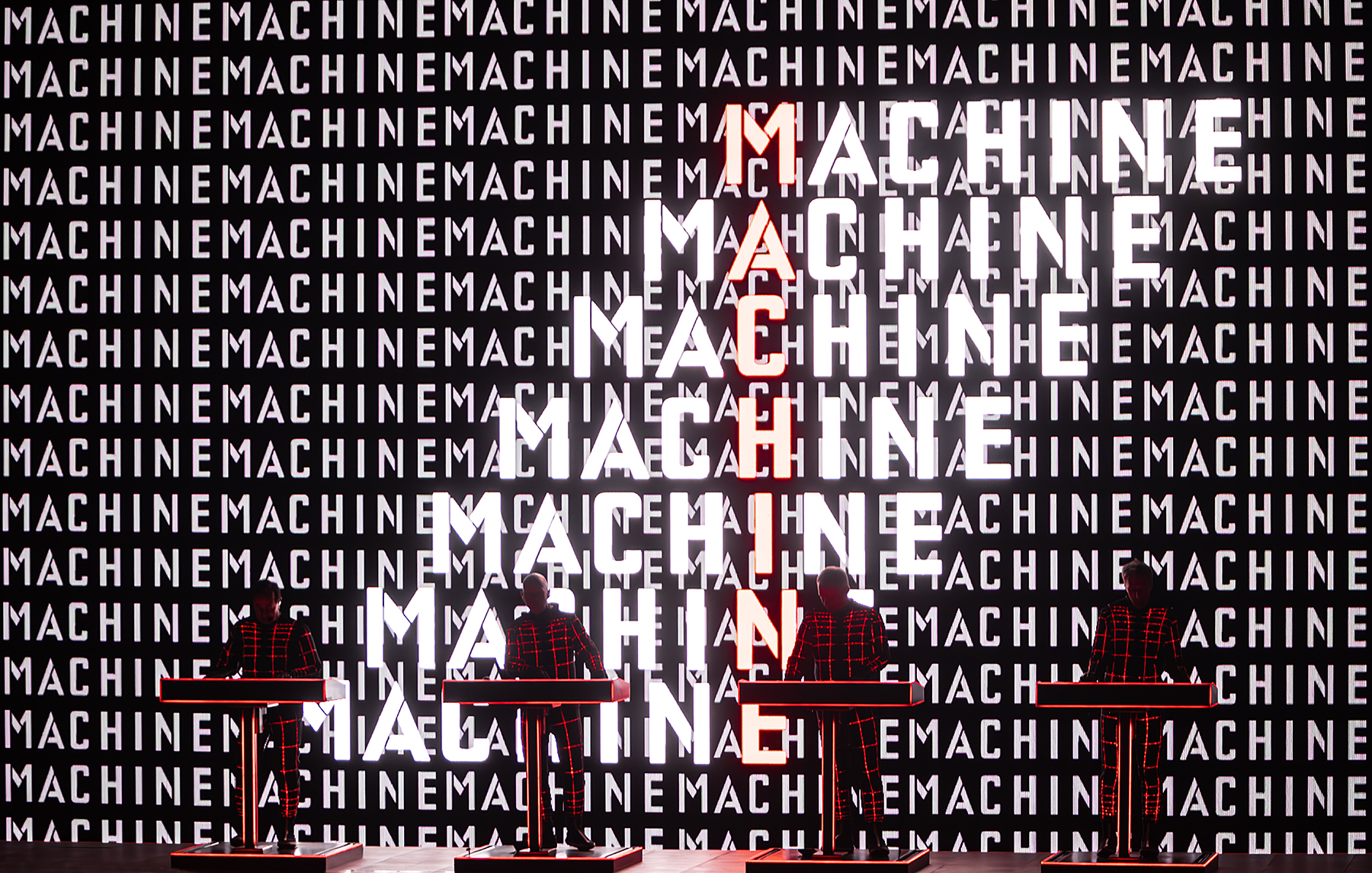
For a band whose recorded music has such a rigidity to it, there were moments during the show where tried and true songs went in directions that were unexpected. The first time was during the outro of “Airwaves,” where the band began adding layer upon layer of keyboards and electronic percussion until the song from the 1975 album Radio-Activity turned into something that could never have been dreamed of fifty years ago. Another case was during the outro of the title track from the same album, “Radio-Activity.” The song has received multiple updates throughout the years, most notably adding a line about the Fukushima nuclear disaster in 2012. At the show in Berkeley, once the song was expected to end the band extended it further, essentially turning it into a dance song that encouraged even more of the crowd to get on their feet and move to the music.
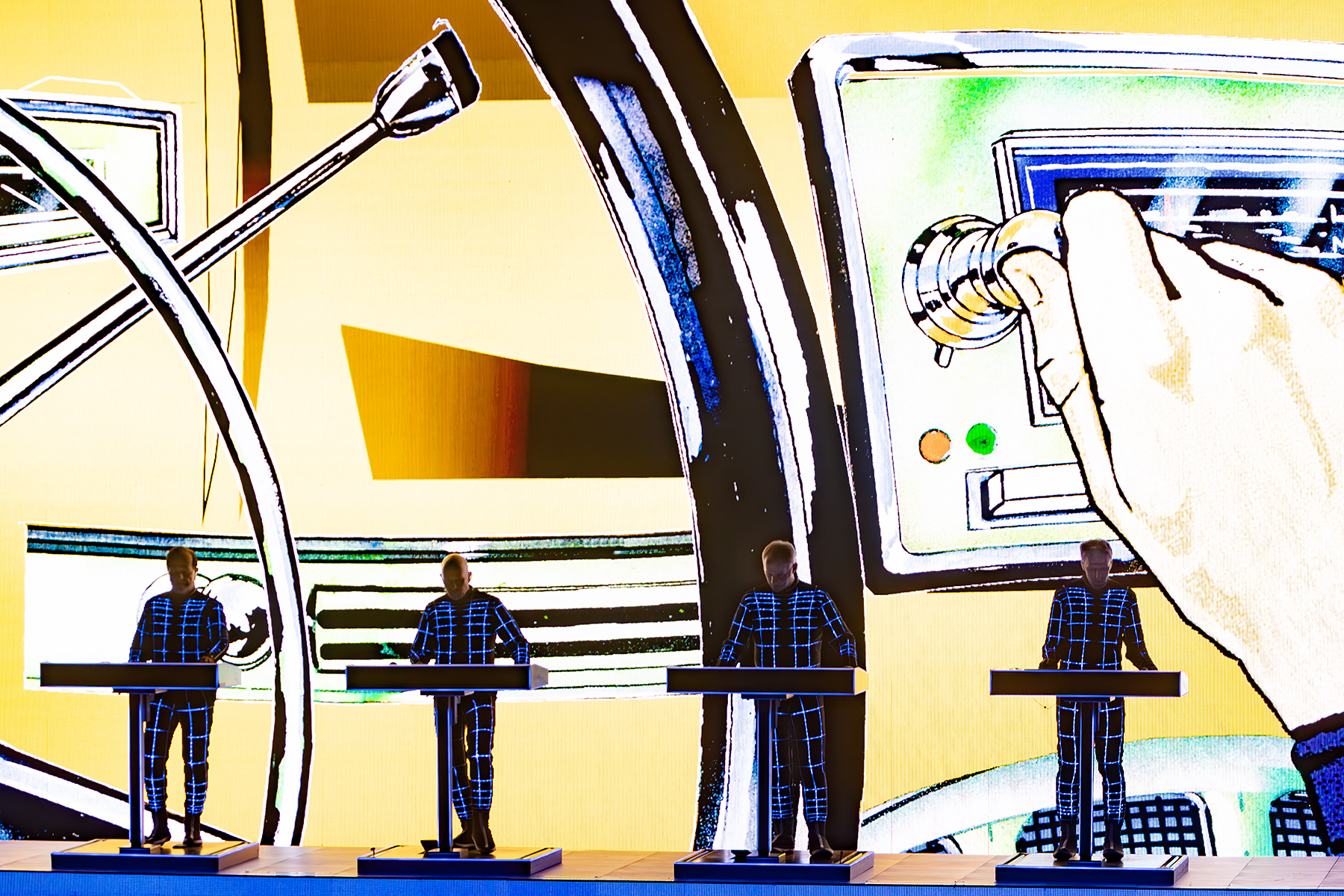
Unfortunately all good things must come to an end, and Kraftwerk ended the show with a medley of “Boing Boom Tschak,” “Techno Pop,” and “Musique Non Stop” from their massively underrated 1986 album Electric Café. Although the album received a mild reception at the time of its release, the songs received just as positively of a reception as any of the more renowned songs played earlier in the set. After ten minutes of some of the best electro music that’s ever been played, the band began to exit the stage one by one. Finally only Ralf Hütter was left, and after about a minute of playing the keyboards onstage alone, he stepped out from behind his podium, walked stage left, and bowed to the audience who gave the loudest cheers and applause of the entire show. The final living founding member of Kraftwerk exited the stage, and the show ended.
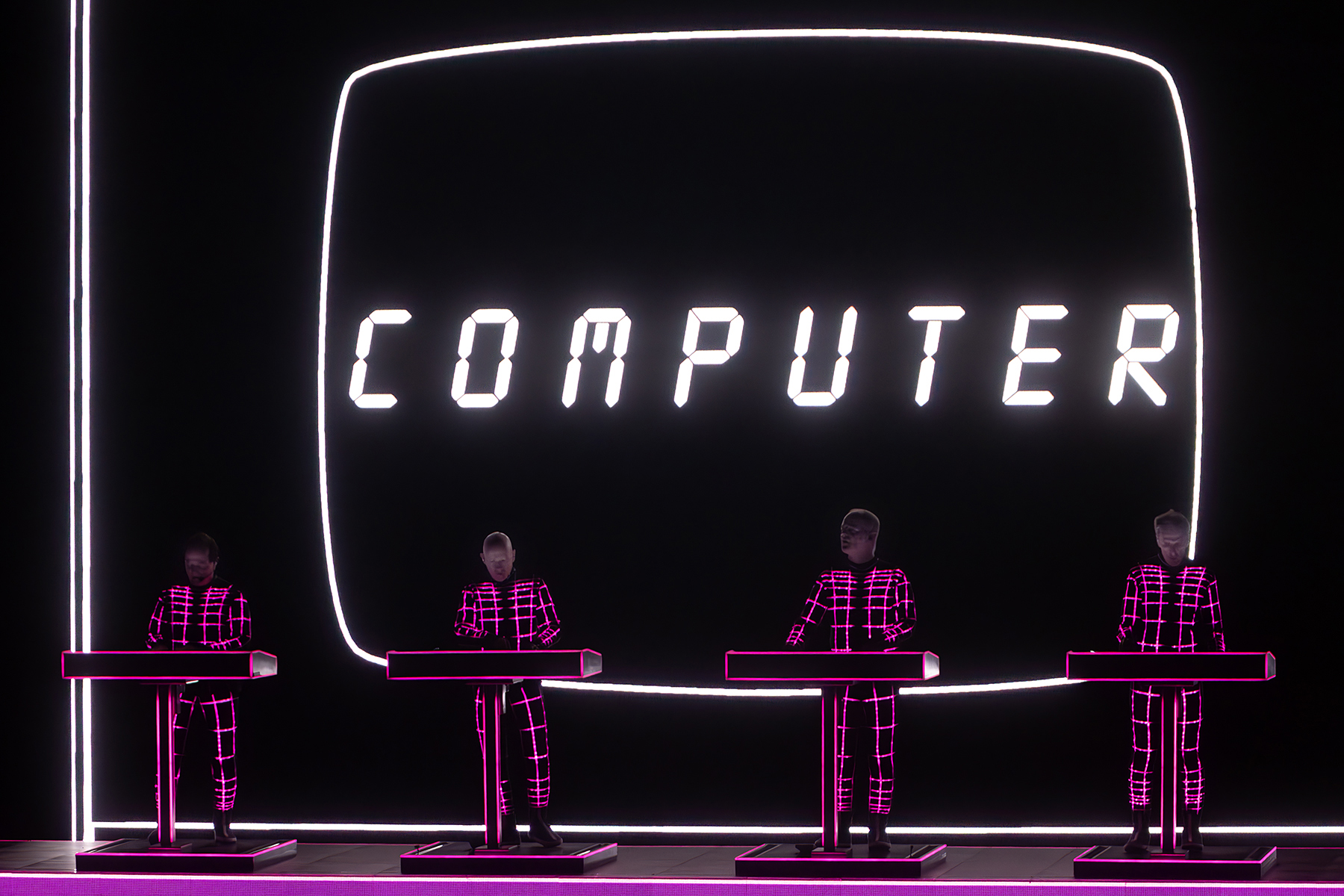
There is an argument that I have seen online about who was the more influential band: The Beatles or Kraftwerk? Despite the fact that The Beatles were the first band that I ever fell in love with, so much of the music that is loved today, not just by me but by so many people in the world, simply wouldn’t exist without Kraftwerk. Without the band that Ralf Hütter and the late Florian Schneider founded in 1970 there is no explosion of new wave and synth pop in the late 70s and 80s, Bowie never makes his Berlin trilogy, Detroit techno arguably never happens, and the embracing of synthesizers, keyboards, and electronic elements as a whole in popular music would have been done completely differently. The band also foresaw things like finding love online (“Computer Love”) and the ease in which humanity would find themselves online and communicating with one another (“Computer World”). I can not imagine world where Kraftwerk never existed, and any time that I see them in concert I come away feeling blessed and fortunate enough to see the most influential band of all time one more time. May these robot’s batteries remain charged forever.


